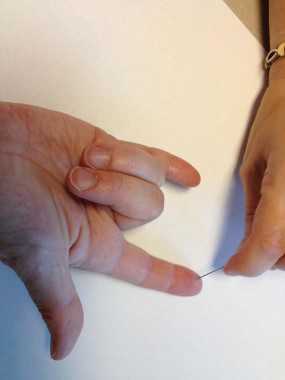ACP和FSMB 指南不建议医生在社交网站上添加患者好友
2013-04-22 ACP FSMB 丁香园
美国内科医师协会(ACP)和州医学委员会联盟(FSMB)新指南提醒医生,最好不要在脸书(Facebook)等社交网站上添加患者为好友。ACP和联盟指南列出了电子邮件和社交媒体的诸多优点,如改善治疗使用权限等,但“职业和社会的界线可能会模糊,” Humayun J. Chaudhry医生说,他是FSMB的主席兼首席执行官,同时也是该指南的作者。“医生应专业地对待自己的网络行为。”Chaudhry医生
美国内科医师协会(ACP)和州医学委员会联盟(FSMB)新指南提醒医生,最好不要在脸书(Facebook)等社交网站上添加患者为好友。ACP和联盟指南列出了电子邮件和社交媒体的诸多优点,如改善治疗使用权限等,但“职业和社会的界线可能会模糊,” Humayun J. Chaudhry医生说,他是FSMB的主席兼首席执行官,同时也是该指南的作者。“医生应专业地对待自己的网络行为。”
Chaudhry医生和美国内科医生学会年度会议上说,网络和短信沟通存在诸多弊端。保密性可能不佳,医患关系也可能被破坏,而且沟通可能会脱离原本范围。另外,还可能导致相关的纪律处分案例增加。最近的百分之92的州医学委员会研究显示,这些委员会曾处理至少1例导致处分(包括吊销执照)的非专业网络行为(Ann. Intern. Med. 2013;158:124-30)。
ACP 和FSMB的该指南发表于4月11日在线版《内科学年鉴》上。旨在提供医生意识到网络交流的潜在风险。另外,指南也建议医生:
·不要使用短信进行医学互动,即使是与熟识的患者也不要这么做,除非非常慎重且患者同意。
·仅在与患者确定关系的情况下才能使用电子邮件,并且需要经过患者同意。
·建立专业在线档案,让其在网页搜索时能够排在页面上部,位于任何医生评级网站之上。
·不鼓励与非患者个体进行电子邮件或在线交流,但可建议其预约或到适当的医生那里就诊。
·管理数字图像,包括不要在推特(Twitter)、博客上发帖谈论可能无正面意义的个人社交活动,或针对网上的文章发表无充分依据的评论。
David A. Fleming医生是ACP评议委员会成员,ACP伦理会主席,人权委员会专家,他说,电子邮件存在风险。新指南鼓励仅在已建立联系的医患间进行电子邮件沟通,并清楚这种交流存在不安定因素,他说,通过电子邮件进行沟通不太安全,而且所传输的信息可能被挖掘出来用于法律目的。
不过,对于正处于危险情况的患者发来的电子邮件,一旦医生以任何方式回应,则表明与患者建立了关系,此时应本着受托人的责任,不仅需要首先知道自身的限制,而且也要了解患者需要接受干预的程度。如果需要干预,则医生有义务帮助患者。
社交媒体是倡导患者进行疫苗接种、运动或留意体重的良好方式,但在推特或脸书上发帖仍存在风险。医生在表达个人观点或代表专业组织时需要考虑清楚。编写组专家表示,ACP和FSMB未主张对医生的网络言论进行审查,但建议他们在点击发送前多加考虑。Chaudhry 医生说,“我们并不是告诉人们应该说什么,不该说什么,我们只是只是建议他们在点击发送前稍加考虑。”
与医患相关的拓展阅读:
- APA:医患关系与抗抑郁治疗
- ACP发布医患手册以降低冠脉事件后再入院率
- 医患沟通将进医学本科教育课程
- “医务人员语言问题”最影响医患关系
- 医患交流有助肾病患者理解疾病预后
- 人民日报:医患关系再也“伤不起” 更多信息请点击:有关医患更多资讯
原文阅读:ACP and FSMB offer social media guidelines
SAN FRANCISCO – Tempted to "friend" a patient on your personal Facebook page? That’s probably not a good idea, according to new guidelines issued by the American College of Physicians and the Federation of State Medical Boards.
The ACP and federation guidelines outline many benefits from use of e-mail and social media, including improving access to care, but "the boundaries between professional and social spheres can blur online," said Dr. Humayun J. Chaudhry, president and chief executive officer of the Federation of State Medical Boards (FSMB) and an author of the guidelines. "Physicians should keep the spheres separate and comport themselves professionally online."
Alicia Ault/IMNG Medical Media
The new guidelines are designed to help doctors manage their professional online presence, Dr. Humayun J. Chaudhry said.
Opportunities for misadventure abound with online communications and texting, Dr. Chaudhry said at the annual meeting of the American College of Physicians. Confidentiality can be breached, as can the patient-physician relationship; the communications can be taken out of context or be spread widely beyond the original conversation.
And disciplinary actions are likely to increase. In a recent study of state medical boards, 92% reported that they had dealt with at least one case of unprofessional online behavior that led to punishment, including license revocation (Ann. Intern. Med. 2013;158:124-30).
The ACP and FSMB guidelines, published online Apr. 11 in the Annals of Internal Medicine, are meant "to serve as a wake-up call to physicians, to make them aware of some of the dangers that are out there," he said. Aside from not "friending" patients, the guidelines also recommend the following to physicians:
• Don’t use text messaging for medical interactions, even with established patients, except with caution and the patient’s consent.
• Only use e-mail within the context of an established relationship with a patient, and with that patient’s consent.
• Establish a professional online profile so that it appears at the top of a web-based search, above any physician rating site.
• Discourage e-mail or on-line communications with individuals who are not patients, instead referring them to make an appointment or visit an appropriate health provider.
• Manage their digital image, including refraining from posting about personal social activities that might not reflect positively or providing less-than-measured comments on Twitter, blogs, or in response to online articles....
作者:ACP FSMB
版权声明:
本网站所有注明“来源:梅斯医学”或“来源:MedSci原创”的文字、图片和音视频资料,版权均属于梅斯医学所有。非经授权,任何媒体、网站或个人不得转载,授权转载时须注明“来源:梅斯医学”。其它来源的文章系转载文章,本网所有转载文章系出于传递更多信息之目的,转载内容不代表本站立场。不希望被转载的媒体或个人可与我们联系,我们将立即进行删除处理。
在此留言






#ACP#
70
#社交网站#
56
#不建议#
66
#社交#
75